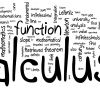 21
21let m = (2k+1)
n = (2k+3) ,where k is any positive integer
so mn+1 = (2k+1)(2k+3) + 1 = 4k2 + 8k + 4 = 4 (k+1)2
m+n = 4(k+1)
mn+1m+n= (k+1)
so All positive integers can be represented by mn+1m+n for positive inegers m and n
 1
1wats the logic bheing u taking m and n as odd?
 36
36Do it this way
case 1> when m is even and n is odd
so, let m = 2k and n = (2k + 1)
Now, mn + 1 = 2k(2k + 1) + 1 = 4k2 + 2k + 1
and, m + n = 2k + 2k + 1 = 4k + 1
Thus, mn + 1m + n = 4k2 + 2k + 14k + 1, which is always odd
case II> When m and n are both even
then, mn + 1 will be odd (clearly) and m + n will be even
but, odd/even can never be an integer.
But in the given set, each element is an integer.
Hence, only the odd integers between 0 and 2005 i.e., 1,2,3,........,2004
i.e., 1002 numbers. Ans.
Am i right? Do verify me.
 1
1thanks shubhdip ....thatscorect.Second part -
Show that m and n need not be necessarily odd .
 36
36oh! sorry....
I forgot the third case >> When m and n are both odd....!!
 71
71@Kunl,
Subho did it all, but only posted the solution which fetched the answer!
 1
1ok it was later i realized tht n after tht it said post too old to edit :P